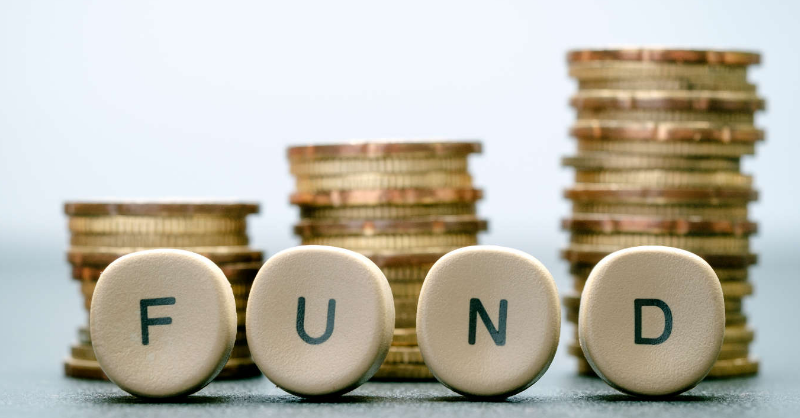
The term "fixed income" refers to a specific type of investment that guarantees its owners a certain amount of money at predetermined intervals until the investment matures. Securities such as corporate bonds, government bonds, and preferred shares typically pay out as interest or dividends. Compared to investing in stocks, the predictable nature of fixed-income securities' payments can make for a more comfortable financial decision.
Companies also provide funds that have exposure to numerous fixed-income products, while investors can buy securities directly from issuers. One such firm is Vanguard. Its fixed-income funds, which often have lower expenses and other advantages, have surpassed their respective benchmarks regularly.
According to other experts, the best fixed-income funds to invest in during 2023 are as follows.
1. WisdomTree Floating Rate Treasury Fund (USFR)
USFR follows the price movement of a basket of short-term Treasury notes with a floating interest rate, as represented by the Bloomberg U.S. Treasury Floating Rate Bond Index. Unlike fixed-rate Treasurys, the coupon payments on floating-rate Treasurys fluctuate based on a reference rate tied to the high yield at the weekly auction of 13-week Treasury bills.
For this reason, a rise in Treasury yields is good news for investors in floating-rate Treasuries. An expense ratio of 0.15% is applied to the ETF.
2. High Yield Tax-Exempt Investor Shares of the Vanguard Funds (VWAHX)

A long-term municipal bond fund, the High Yield Tax-Exempt Investor Shares of the Vanguard Funds (VWAHX) aims to generate a high, consistent income exempt from federal income tax. The fund now has 3,536 bonds, most of which have maturities of either 10-20 years (31.5%) or 20-30 years (35%). Most of the fund's net assets are placed in municipal bonds with investment-grade ratings established by nationally recognized rating organizations when market circumstances are ordinary.
Most municipal tax-exempt investment-grade bonds are included in the Bloomberg Municipal Bond Index, the fund's benchmark. Returns of 0.71% and 4.24% over one and ten years, respectively, are higher than the benchmark. During those times, the index returned -0.66% and 3.15%, respectively.
Putting money into Vanguard requires a minimum of $3,000. Vanguard reports that the average net expense ratio for municipal bond funds with similar assets is 0.87% per year, so this one charge's 0.17% annual fee is far lower than the market average.
3. iShares 1-3 Year Treasury Bond ETF (SHY)
However, some argue that the Fed will continue to raise rates even if a recession is imminent. Managing director of Coastal Bridge Advisors David James predicts that inflation will be "somewhat sticky," therefore investors may be better off sticking with shorter-term investments. The yield on a two-year Treasury is 4.3% as of today. That's appealing to a wide range of potential financiers.
James recommends a low-cost index fund that mostly holds U.S. Treasuries with one to three years of maturity. SHY could be a good option because it follows the ICE US Treasury 1-3 Year Index and has an effective length of 1.8 years, making it less sensitive to changes in interest rates. SHY now offers a 4.5% yield until maturity. This ETF is now $27 billion in AUM, and its cost ratio is 0.15%.
4. Vanguard High-Yield Corporate Fund Investor Shares (VWEHX)
Through investments in low- to intermediate-quality corporate bonds—often referred to as "junk bonds"—the Vanguard High-Yield Corporate Fund Investor Shares aims to provide a high income. These securities have received credit ratings from Moody's or other bond rating agencies lower than Baa. The fund has over 600 high-risk, high-yield bonds from various industries. Topping the list are:
- Communication (18.4%)
- Consumer noncyclical (15.8%)
- Consumer cyclical (15.8%)
Vanguard's Wellington Fund, managed by the Wellington Management Company, has a $3,000 minimum investment. With an annual expense ratio of just 0.23%, it's a steal compared to other corporate bond funds. Vanguard found that comparable funds typically had an average expense ratio of 0.92%.
The High-Yield Corporate Composite Index serves as this vehicle's primary measure of performance. Comparing VWEHX's returns to those of the benchmark over the same period reveals that VWEHX has underperformed the bar by a small margin.
5. Vanguard Intermediate-Term Investment-Grade Fund Admiral Shares (VFIDX)

Investment-grade corporate bonds are those with a Standard & Poor's credit rating of BBB or better. They attract income investors ready to take on additional credit risk in exchange for higher returns.
Kapyrin suggests VFIDX because it invests in various bonds (including government and corporate debt) with five to ten years of maturity. It has an intermediate duration (6.3% of its total length) and a 5.2% yield to maturity. As interest rates rose in 2022, bonds will once again be able to provide investors with "meaningful investment returns," as Kapyrin puts it.



